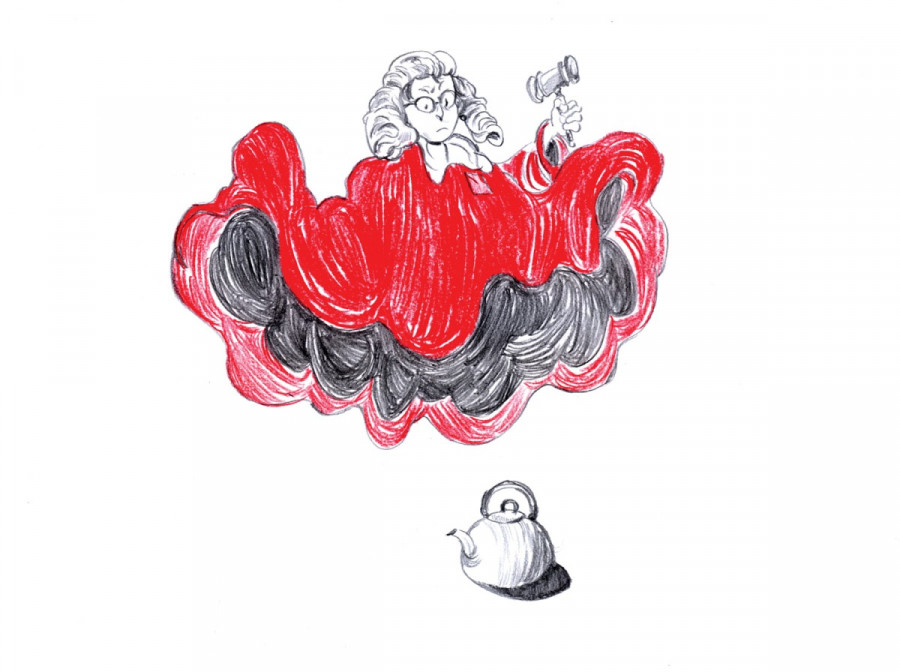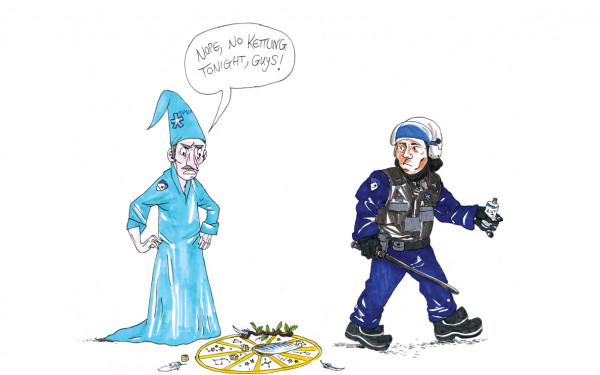Editorial: Lawsuits to Keep SPVM Accountable
If the city of Montreal can’t hold its police service accountable for its excessive use of force, hopefully our legal system can.
With eight class-action lawsuits recently given the OK to proceed by a Quebec Superior Court judge, after years of people denouncing the questionable police response to the 2012 student protests, it finally feels like something is being done.
Though it may take up to two years for a judgment to be made, we feel that it will, at least, draw attention to the deplorable way the Service de police de la Ville de Montréal dealt with the student movement and other recent protests against government policy.
Their use of force against generally peaceful protesters was uncalled for and unfair. And though that’s been said many times since, their actions have often been dismissed as excusable; given the size of the student protests and other anti-government demonstrations that have drawn tens of thousands into the streets, they had no choice, some argue.
But the plaintiffs and the lawyers of those pursing legal action against the city say they did. They say that not only were the bylaws used by the city and enforced by police unjust and undemocratic, but the tactics used by the police were as well.
Namely, the lawsuits call the use of kettling into question, saying it muffles people’s right to protest (a typically valued aspect of democracy, especially when democracy fails).
It also says kettling is an unjustified way to treat people who may or may not be guilty of an offence that may or may not be constitutional.
If you were at one of the more unruly protests in the past three years, chances are you were caught in one. Chances also are that you were one of the more peaceful protesters—or weren’t even a protester at all, just a passerby caught in the fray—and that’s probably why you got caught in the first place. You didn’t run.
It’s happened to many of us here at The Link, who were there as reporters, and most of those in the kettle with us were also there as reporters for different media.
What’s more, one reporter was injured by a police officer who, despite being caught on video committing the act, was suspended for only a day.
We believe that, if anything, a day of suspension is easily laughed off by a culture of militarization in an organization whose role is to protect us.
Rather than meaningfully serving the community, police have handed out $637 tickets like free T-shirts.
Municipal bylaw P-6 can be exercised arbitrarily to quell protests that are inconvenient for the government by virtue of the protestors simply being a group of people in a public space.
Because the people the furthest from what happened during those two tumultuous years in the realm of Quebec higher education—politicians—have endorsed the bylaws and their enforcement, our last hope is that people’s evidence in court will tell the story for what it is.
The protest called an entire government into question and ended with the demise of a powerful Quebec politician.
Now, it’s time to question the way those pushing the movement forward were treated by the system they sought to change.




_600_375_90_s_c1.jpg)
_600_375_90_s_c1.jpg)
